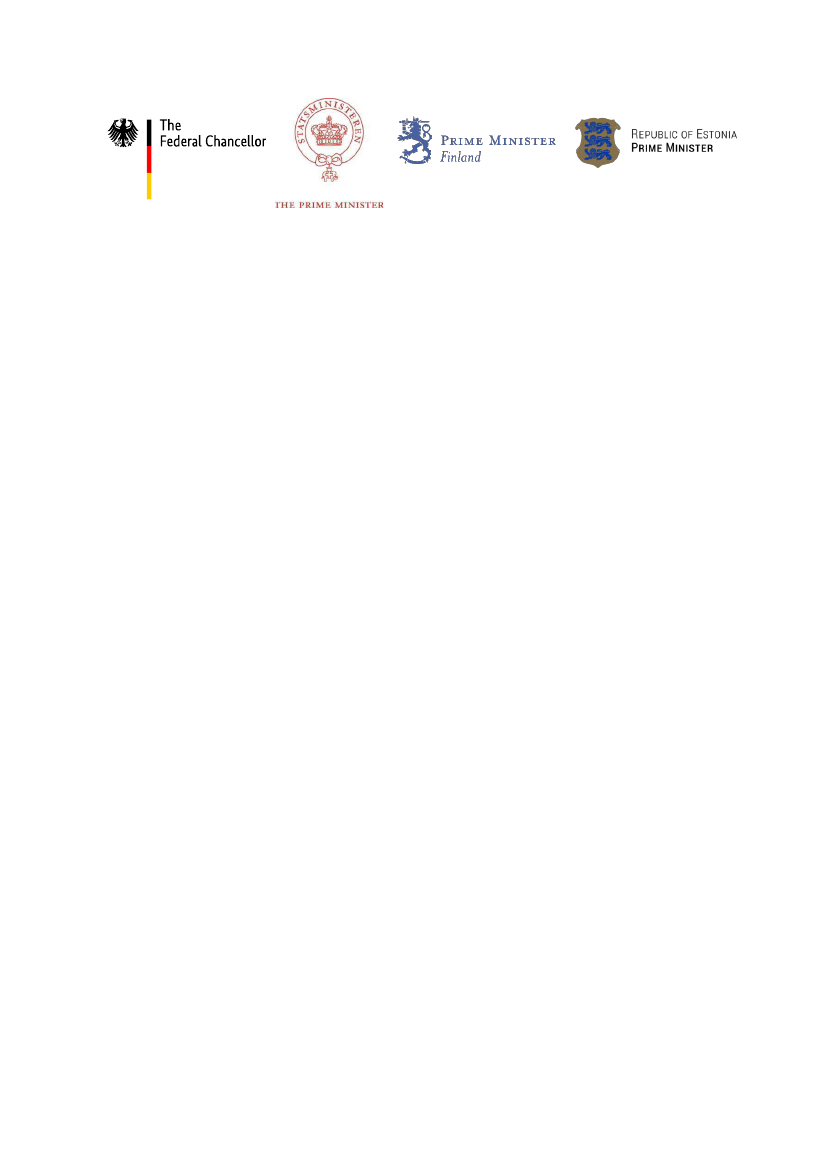
Berlin, Copenhagen, Helsinki, Tallinn
1 March 2021
Madam President, dear Ursula,
Digital transformation is vital for European recovery, for the prosperity, security,
competitiveness and the well-being of our societies. We have joined forces in Europe
during the last months to facilitate swift extensive additional investments in digital
projects via the Recovery and Resilience Facility, to strengthen cooperation across
the digital sphere and to start discussions on a common approach in fields such as
data, artificial intelligence and platform regulation.
At the same time, the dependencies and shortcomings in European digital capacities,
skills and technologies have become more apparent. A significant amount of digital
value-added and innovation takes place outside Europe. Data has become a new
currency which is mainly collected and stored outside Europe. And fundamental
democratic values are under severe pressure in the global digital sphere.
Now is the time for Europe to be digitally sovereign. We have to foster the Digital
Single Market in all its dimensions where innovation can thrive and data flow freely.
We need to effectively safeguard competition and market access in a data-driven
world. Critical infrastructures and technologies need to become resilient and secure.
It is time for digitisation of governments in order to build trust and foster digital
innovation.
We want to develop our capacities and competences in areas where we want to be
more self-determined with democratic partners around the world and building on a
strong transatlantic relationship. At the same time, we want to strengthen and further
develop mutual cooperation and synergies. Digital sovereignty is about building on
our strengths and reducing our strategic weaknesses, not about excluding others or
taking a protectionist approach. We are part of a global world with global supply
chains that we want to develop in the interests of us all. We are committed to open
markets and to free, fair and rules-based trade. This is what digital sovereignty
means to us.
We call for the European Union to get ahead of the curve in the digital
transformation, as outlined by the European Council in October 2020. We believe
that Europe needs to recharge and complement its current digitisation efforts with a
...